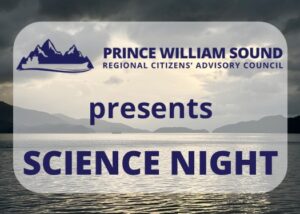Council recertification application for public review
The Prince William Sound Regional Citizens’ Advisory Council is seeking recertification as the alternative voluntary advisory group for Prince William Sound, as authorized under the Oil Pollution Act of 1990 (OPA 90). The application was submitted at the end of last year to the U.S. Coast, which is charged with assessing whether the council fosters … Read more
